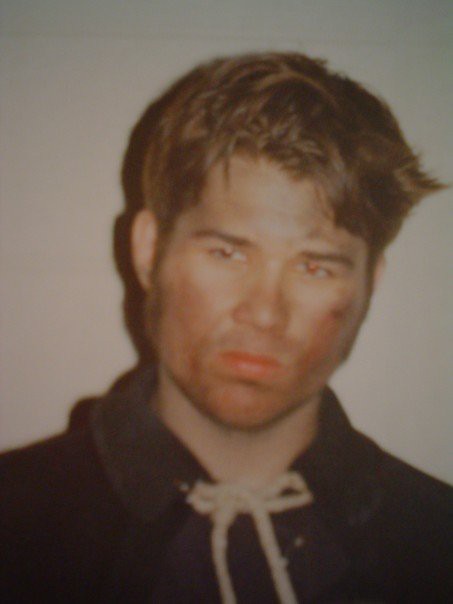The importance of Drama in High School
In 2014 we received news that the my daughter’s high school was canceling Grade 12 Drama. This is an excerpt from an email I sent to the Principal of the school. It highlights why I think the arts are an important part of our development as people, and in particular, young adults.
Drill sergeant in 3 Musketeers
To whom it may concern:
I have had a very successful career in the computer sciences. I own a local high tech firm rTraction; previous to that, I worked for several successful technology companies. I normally prefer being humble, but as an understanding of achievements of both myself and my company will support my argument for dramatic education. I have received several personal and business awards in the London community including Top 20 under 40, and Medium Business of the Year. I was selected as a hero for this year’s Community Living London Night of Heroes, and have served on several boards and committees locally, including, most recently, as the chair of Pillar Nonprofit Network.
I had a fairly “normal” OAC course load for someone planning a career in computer sciences — Calculus, Finite Math, Algebra and Geometry, Chemistry, Physics, English, French, Canadian Literature — with one outlier: Drama. (Possibly two if you include French, but my mother grew up in Quebec — that’s a story for another time.)
I started taking Drama in Grade 10 because I wanted an “easy” course in an otherwise heavy academic rotation, and I was interested in the technical, “nerdy,” aspects of drama: lighting boards, cabling, etc. I was shy, introverted, afraid to even put up my hand in class to answer a question. I did not have many friends and was very isolated because of a combination of extreme shyness and geekiness.
Murderer #1 in “The Scottish Play”
As it turned out, Drama was the hardest class for me that year because it truly challenged me as a person. The academics could be learned with enough practice, but drama was something that was not natural to me. In Grade 11, I decided to continue my Drama journey and stayed through to OAC. No longer because I needed an “easy” class, but because of the complete opposite: drama challenged me in ways that I did not understand at the time, but still felt its value.
I believe my decision to stay with Drama fundamentally and irrevocably changed the course of my life in a positive way. Drama allows us to explore the human condition safely, by reciting others’ words, by being directing or through creating your own direction without risking personal exposure (a terrifying proposition for anyone with anxiety or shyness). The confidence that is built monologue by monologue, scene by scene, solo or as part of a team, enables you to first become comfortable sharing your views amongst your peers, to sharing them with a small group of people, to sharing them amongst a small crowd and then, at least in my experience, to get up in front of 800 people and speak clearly and confidently.
Drama teaches us how to work with a group of people with different interests and approaches from our own, from the dramatic charisma of the lead, to the micromanagement of the stage manager, to the passion of the director, and all the cast and crew in between. A successful production involves many people, and each person knows their part is critical to the success of the show, as are the roles of all the others.
Without drama, I may have still had a successful computer career — likely sitting in the basement of some coding dungeon turning out 1s and 0s. I may have been happy. However, I can state that without my training in Drama, I would not be a community leader, a corporate social responsibility advocate for small and medium businesses, and would not have received the awards and accolades I have achieved. Drama gave me the forum to learn how to engage with and speak to community. I cannot understate its importance in my personal and professional development.
I’ve also seen Drama’s benefits for others. In my experience as a business professional, those who have been most successful in the interviewing process have had either drama or karate backgrounds; both activities seem to create applicants who are confident during the interview process. Also in my experience, there has been a concerted effort within the realm of employment and second career training to teach “soft skills” to job applicants. In my company, we have a “fit” interview before we have a “technical” interview. No matter how great a programmer or designer an individual may be, if they do not pass our soft skills test, they do not progress to the second interview stage.
In my opinion, drama is the best option secondary schools have to prepare the next generations of workers with these important soft skills, including confidence, the ability to interact effectively with others, teamwork and empathy. I think drama strongly develops a child’s EQ and prepares them for a highly connected, highly social community structure. I believe that the advances in social media and the further connectedness of our planet will lead to the emergence of EQ being as important, if not more important, than IQ. I cannot think of a better way to develop EQ in a senior level student than Grade 12 Drama.
I’ve added the ability to join a mailing list of this type of content if you’re interested — please sign up using this form.


